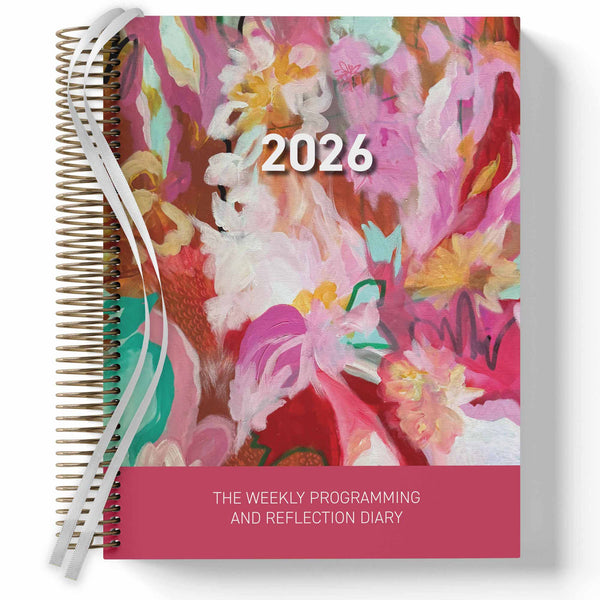Butler Buzz
-
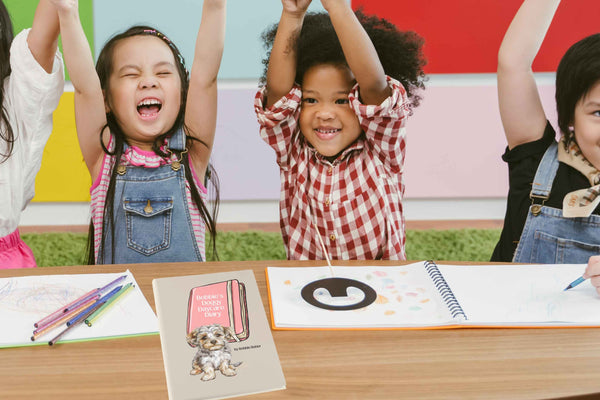
Bobbie’s Doggy Daycare Diary: Create your own Diary extension activity
Extend on the story ‘Bobbie’s Doggy Daycare Diary’ by creating your own Diaries. Children can express themselves and share their Daycare experiences in their very own Diary. Children will foster early language and literacy skills and foster their sense of identity and emotional development. Recalling their day and experiences strengthens memory, encourages reflection and helps link learning. Folding, stapling, writing and drawing all strengthen physical skills.
-
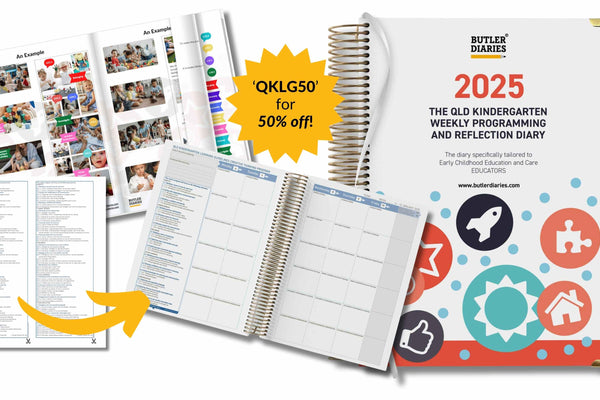
2024 Revisions to the Queensland Kindergarten Learning Guidelines (QKLG 2024): What's New?
Here we check out what's new in the QKLG 2024 to support you in your transition. The support in this article is a perfect tool to be utilised in staff meetings and reflective discussions in the lead up to 2025.
-
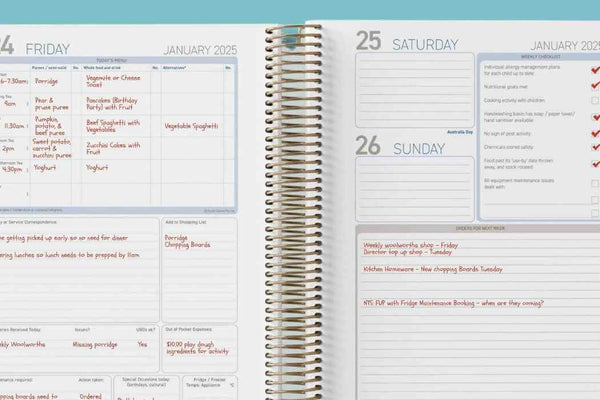
A Peek into the Early Childhood Cook Diary for ECEC with Examples
Here's we take a peek into the Early Childhood Cook Diary to see how it can help cook's and chef's in Early Childhood manage their kitchens and stay on top of compliance. -
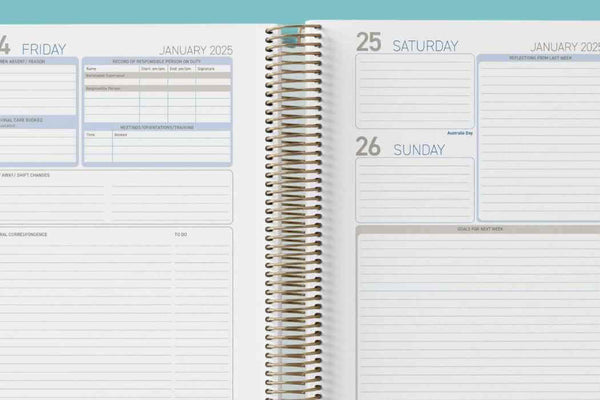
A Look into the Children's Centre Diary with Examples
Here's we take a look at the Children's Centre Diary to see how it can be used to streamline your admin and help manage your office. -
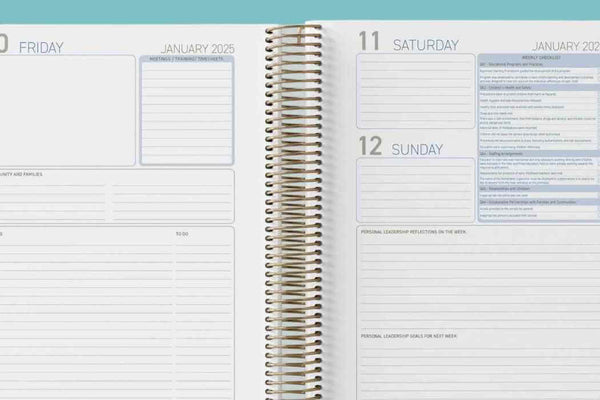
A Deep Dive into the Nominated Supervisor Diary with Examples
Here's we take a deep dive into the Nominated Supervisor Diary to see how it can be used to improve efficiency, memory and quality improvement in your service.
-
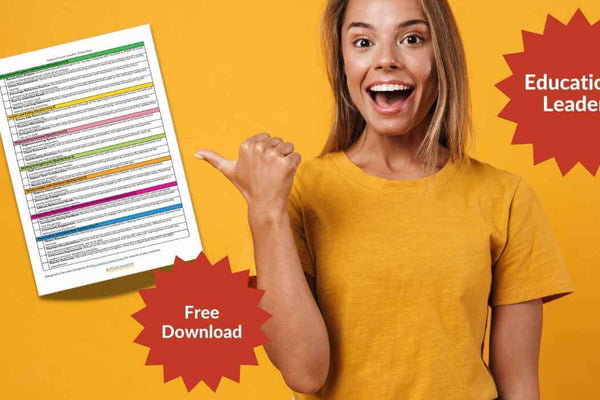
Expectations of Educational Leaders in Early Childhood Education and Care (ECEC): Free Checklist
As an Educational Leader in Early Childhood Education and Care (ECEC), it's crucial to have clear guidance to ensure you are fulfilling your role comprehensively. Your role is pivotal in shaping the educational practices and overall quality of the service. This guide provides clear directions on your expectations, responsibilities, and practical steps to effectively lead your team, ensuring the best outcomes for children in your care. Download the free checklist... -
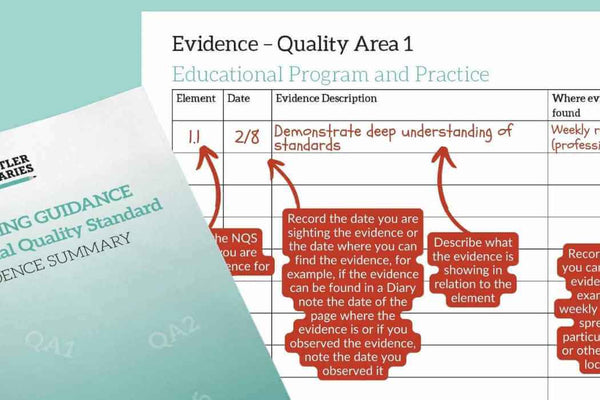
How to complete the Exceeding Guidance for National Quality Standard: Evidence Summary
The Exceeding Guidance for NQS Evidence Summary is designed to support you in succeeding at exceeding with guides to exceeding themes and evidence pages for national quality standards. Each quality area is followed by an evidence page that captures details of the evidence you've collected, where it is kept, and which element it relates to. -
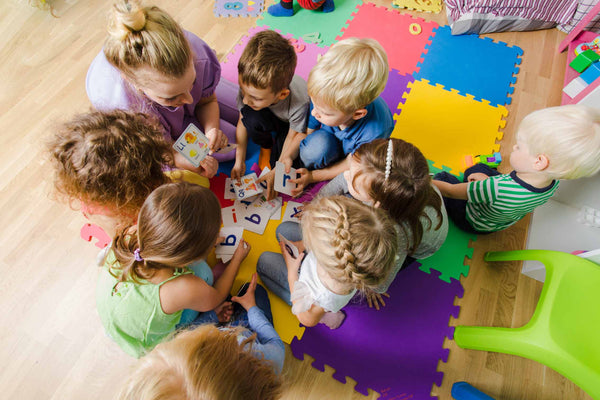
What Are the Duties of a Family Day Care Educator?
Family Day Care (FDC) educators play a crucial role in the Early Childhood Education and Care (ECEC) sector, offering a unique and personalised form of child care within a home environment. Their duties extend beyond mere supervision, encompassing a broad range of responsibilities that contribute to the development and well-being of the children in their care. Here, we explore the key duties of a Family Day Care educator. -
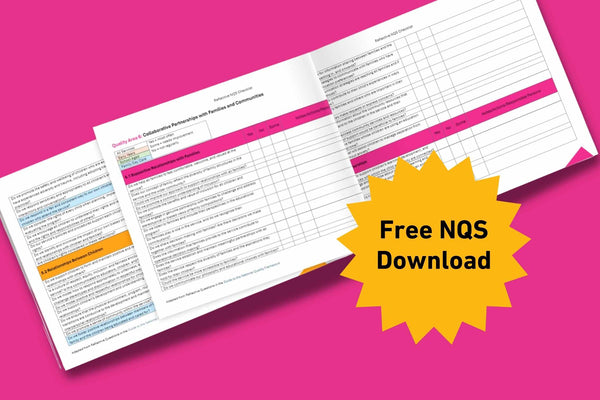
Free NQS Download: Reflective NQS Checklist
This Reflective NQS Checklist has been adapted from the Guide to the National Quality Framework to provide you an easy to follow and use template for reflecting on your practice against National Quality Standards. It's a great resource for self-assessing your service and reflecting on areas for improvement and assigning persons responsible for overseeing those improvements.
-

Example Program Ideas for Babies with Links to EYLF V2
In our blog, 'Tips for Programming for Babies in the Weekly Programming and Reflection Diaries' we discuss how to adjust your program for babies and one of our tips was understanding that not all boxes in your program need to be filled every day. Here is an example program of activities for babies and includes which box it would program under in your Weekly Programming and Reflection Diary, links to EYLF and the description you need to replicate the experience. -

Tips for Programming for Babies in the Weekly Programming and Reflection Diaries
The Weekly Programming and Reflection Diaries are designed to capture programs from babies through to school aged children. Slightly adapting the way you approach programming is what will help you complete your program. This article will support you to implement the Butler Method for younger age groups.
-
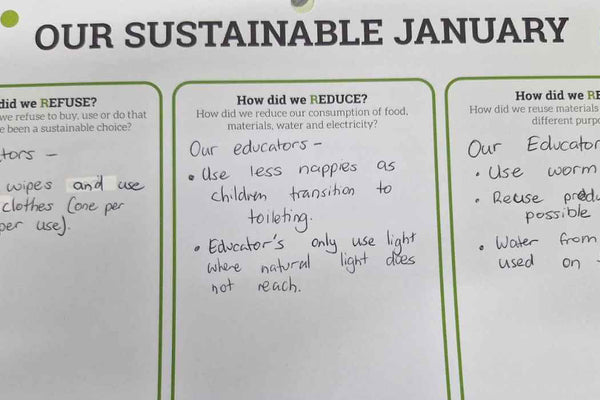
An Example of the Sustainability Calendar: QIP in Action
We recently received an example of the Sustainability Calendar and how it is being used to show the Quality Improvement Plan in Action, check it out. -
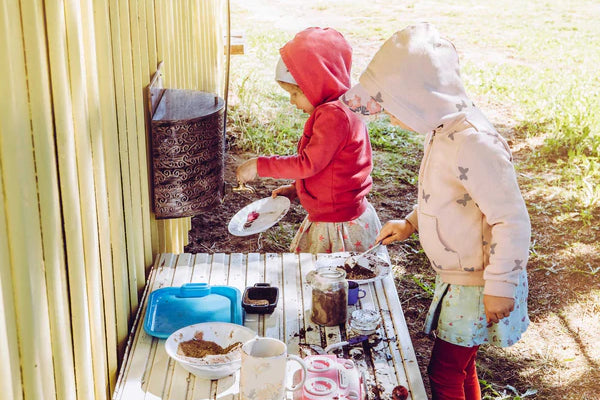
How to Link Theorists to Observations in Early Childhood Education and Care
The best way to learn about how to do something, whether it’s how to teach or how to care for children, is to learn from those who have already done it. Those individuals are called theorists, and their theories are the structures upon which much of the practice that you see around you was built. While all of these theories are extremely beneficial in your practice, it can be difficult to know how each one can be used effectively, especially if you’re new to the field of early childhood education and care. -

7 Behaviour Techniques for ECEC with Links to Theorists and Reflection Points
In Early Childhood Education and Care (ECEC), effective behaviour management techniques are crucial for creating a positive learning environment. Here are some techniques along with links to relevant theorists or research to support you in your practice and reflection... -
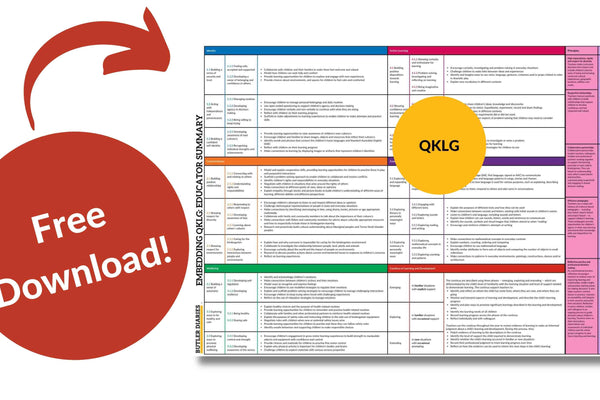
Free QKLG Download: Embedding QKLG into Practice Educator Summary Poster
We delve into the significance of integrating the QKLG into practice and explore the practical application of the Continua of Learning and Development. We've also included a free download, "Embedding QKLG Educator Summary" to support you in your programming, reflections and practice. -
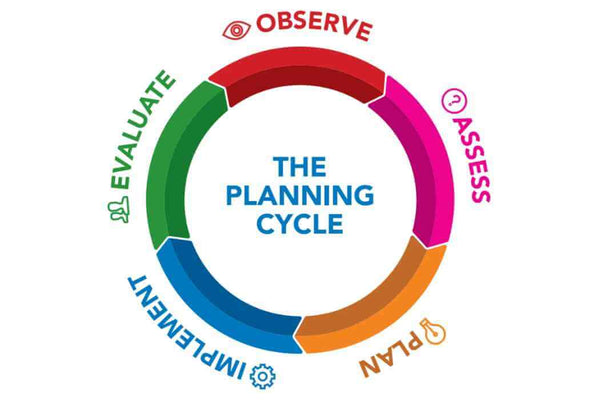
A Practical Example of a Cycle of Planning
Here is an example of what a cycle of planning might look like... -

Where to find examples of the OSHC Weekly Programming and Reflection Diary?
We have a ton of examples and support available for our Weekly Programming and Reflection Diaries... here's how to find them. -
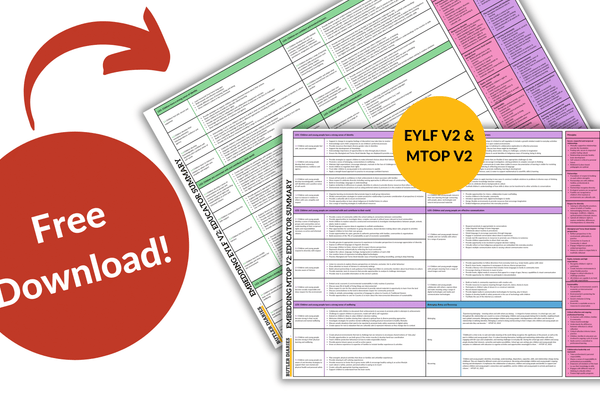
Free EYLF Download: Embedding V2 Educator Summary Poster
With the release of the Early Years Learning Framework Version 2 (EYLF V2) and My Time Our Place Framework Version 2 (MTOP V2), educators have a powerful tool at their disposal to enhance the learning experiences of young children. In this guide, we delve into the significance of V2 and offer insights into effectively embedding it into practice. We've also included a free download, "Embedding V2 Educator Summary" to support you in your programming, reflections and practice. -
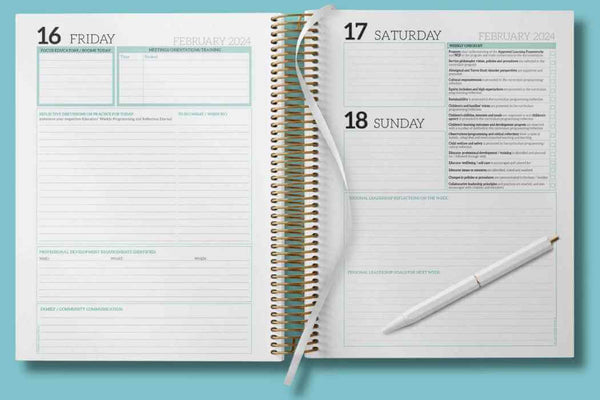
A Quick Guide to the Educational Leader Diary with Examples
The Educational Leader Diary when used correctly acts as a Reflection Tool and shows how critical reflection is being used within the team to improve outcomes for children. It demonstrates and captures evidence of the role of the Educational Leader and the work they are doing to support Educators. Here's a quick guide to the Educational Leader Diary to maximise the way it's being used in your service. -
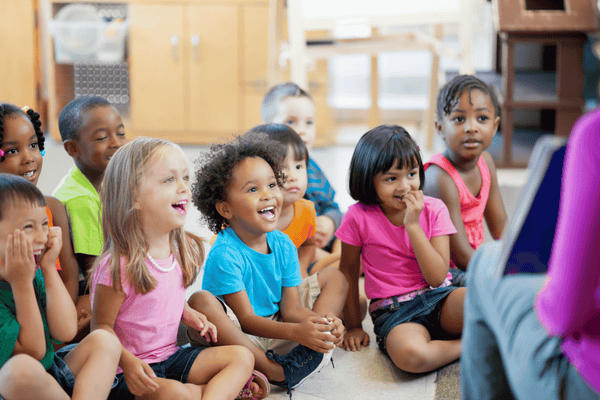
20 Engaging Group Time Experience Ideas for ECEC
Group times are a cornerstone of Early Childhood Education and Care (ECEC). They offer opportunities for children to learn, engage, and connect with their peers and educators. To make group times truly enriching and captivating, it's important to have a variety of activities at your fingertips. Here are 20 engaging group time experience ideas that align with EYLF, ensuring a holistic and stimulating learning environment. -
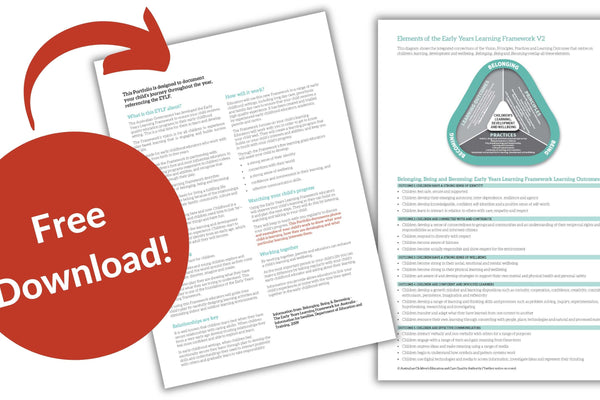
Providing EYLF Information for Families: Free EYLF Portfolio Information for Families
At Butler Diaries, we understand the importance of making complex topics accessible, so we've created an EYLF Portfolio Information Pack for Families that you can include in the front pages of children's Portfolios. The Pack includes the purpose of a child's portfolio and explanations of linking to EYLF, how it works, the importance of play, children's progress, and working together. We've also included a bonus Elements of the Early Years Learning Framework Summary Page to help make it clear. -
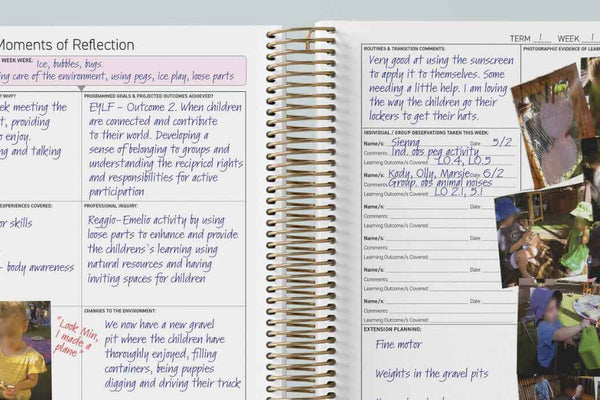
FAQs on the Weekly Programming and Reflection Child Educator Diary
Have some questions on how the Weekly Programming and Reflection Diary can best be used to show the cycle of planning and children's goals? Wondering how to use it and show evidence for Assessment and Rating... all your information is here. -
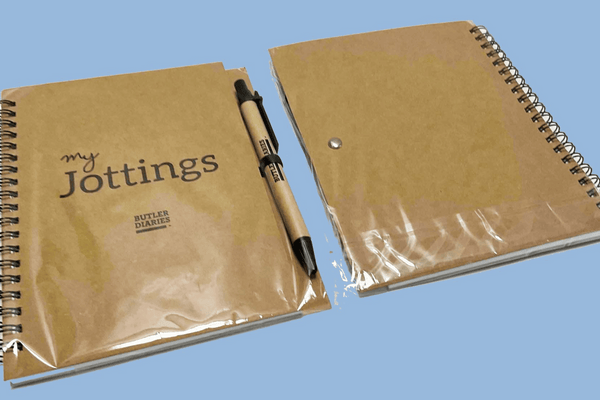
What's the role of Jottings in ECEC?
In Early Childhood Education and Care (ECEC), jottings play a crucial role as a form of observation and documentation. Jottings are concise, brief notes or records made by educators to capture significant moments, behaviours, or interactions of children in their care. These observations are integral to the EYLF, as they support the principles and practices of the framework, emphasising the importance of understanding and responding to children's interests, strengths, and learning styles. -

Free Early Childhood Christmas Program with Links to EYLF
Download your free EYLF Early Childhood Christmas Program. Incorporating these Christmas activities into your ECEC program not only brings holiday cheer but also aligns with the principles of EYLF. It's a testament to the rich learning opportunities that can be found in every festive season. Remember to document these activities in your Weekly Programming and Reflection Child Educator Diary. -

EYLF Activities to Develop Gross Motor Skills 0-5 Years
In the first two years of life, children are rapidly developing their gross motor skills. Here are some activities tailored to 0-5 year olds that are linked to the Early Years Learning Framework. -

Linking EYLF and MTOP Practices to Theorists
Here's another quick reference guide. This time to help you link the EYLF and MTOP practices with Theorists in Early Childhood Development. Perfect for your programming, reflections, and learning stories!
-
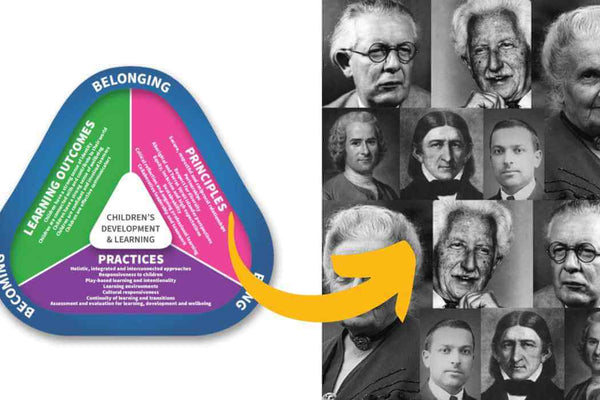
Linking EYLF and MTOP Principles to Theorists
Here is a quick reference guide to help you link the EYLF and MTOP principles with Theorists in Early Childhood Development. Perfect for your programming, reflections, and learning stories!
-
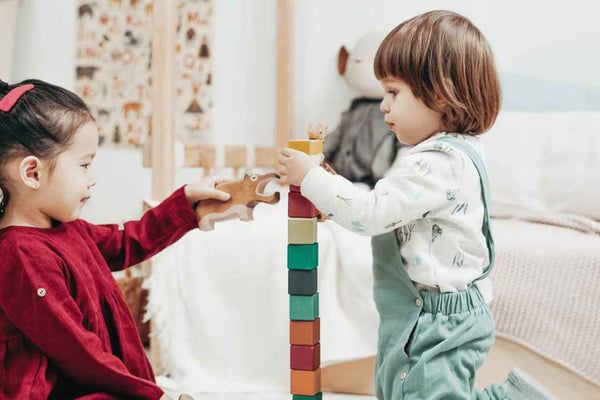
A Guide to Writing Observations in Early Childhood Education
The practice of documenting observations is a cornerstone in Early Childhood Education and Care (ECEC). These observations serve multiple purposes, from mapping a child's developmental milestones to identifying their interests and skills. Moreover, observations lay the groundwork for effective programming and are instrumental in maintaining quality as delineated by frameworks like the Early Years Learning Framework (EYLF) and the National Quality Standards (NQS). -

Sustainability Prompts for your ECEC
It is pretty common now that most people recognise and even celebrate sustainable practices. This is no different in Early Childhood Education and Care. The industry places a heavy priority on Sustainable Practices and recognises your important role of inspiring the new generation in our collective responsibility. Early Childhood Education and Care has the opportunity to pave the way for a sustainable future.
-
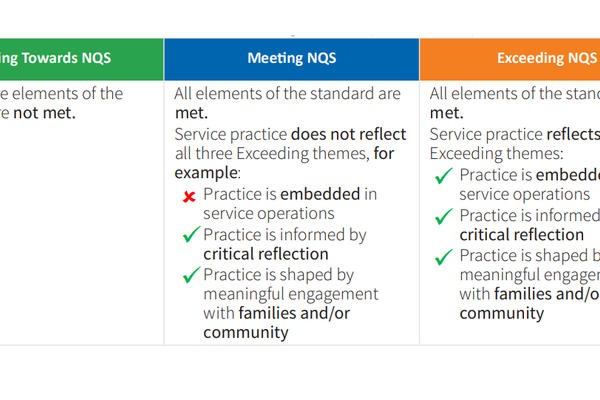
Meeting vs Exceeding NQS
Are you unsure about the difference between Meeting and Exceeding NQS? How is it decided where your service lands? The answer lies in the three Exceeding Themes. -

NQF Changes Coming 1st of October 2023
We know... another change! These changes also come from the 2019 NQF review and are in addition to the changes we saw on 1 March 2023 and 1 July 2023. It feels impossible to keep up but don't worry, we've got you covered. Here is a summary of the NQF changes coming on the 1st of October 2023. -
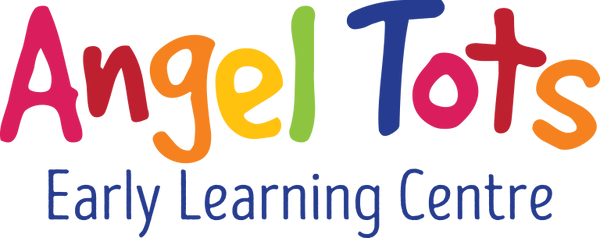
"Streamline practice and compliance": A Case Study
We asked our wonderful long term customers, Angel Tots Early Learning Centre, to share with us how Butler Diaries are used inside their service and they provided some amazing insights into compliance, streamlining practice, and creating tailored and individualised programs for the children in their care.













































